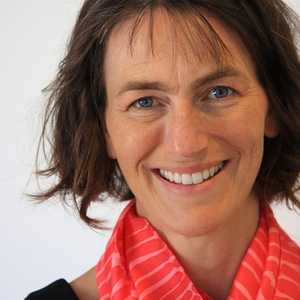Positive Emotions: Science and Practice with Fredrickson and Brantley
The John A. Tate Endowed Lecture, sponsored by Mark Fraser, John A. Tate Distinguished Professor for Children in Need
Positive Emotions: The Science Behind Them and Practices to Change Your Life
presented by Barbara Fredrickson, Ph.D. and Mary Brantley, LMFT
Monday, September 22, 2014, 12-2 pm, at the Tate-Turner-Kuralt Auditorium of the UNC School of Social Work, Chapel Hill, NC (catered meet-and-greet reception at 11:15 am)
Description: It is well known that early experiences of trauma and neglect can alter neural pathways, which have pathophysiological effects on wellbeing. This workshop provides a hopeful counterweight by presenting evidence on the healing power of positive emotions. Drawing from her renowned work on positive emotions, Barb Fredrickson will share findings on restorative processes of emotions, including from her latest work on love. This includes a paradigm shift on love itself as micro-connections that are available to all of us, regardless of relationship or family status. Mary Brantley will demonstrate how lovingkindness meditation can set the stage for profound changes. Together, they will provide tools to explain and incorporate positive emotions into daily practice.
 Barbara L. Fredrickson, Ph.D. is Kenan Distinguished Professor of Psychology and Director of the Positive Emotions and Psychophysiology Laboratory at UNC Chapel Hill. She has published widely on emotions and positive psychology, including her broaden-and-build theory that explains how positive emotions can lead to novel, expansive, and exploratory behaviors that, over time, generate meaningful, long-term resources, such as knowledge and social relationships. Dr. Fredrickson is regularly invited to give keynote addresses nationally and internationally, and has won numerous awards for her teaching and research, including the American Psychological Association’s Templeton Prize in Positive Psychology and the Society of Experimental Social Psychology’s Career Trajectory Award, and the 2013 Christopher Peterson Gold Medal, the highest honor bestowed by the International Positive Psychology Association. Her books, Positivity (2009) and Love 2.0 (2014) share the science of positive emotions with a general readership with an emphasis on how to apply it to overcome negativity and thrive.
Barbara L. Fredrickson, Ph.D. is Kenan Distinguished Professor of Psychology and Director of the Positive Emotions and Psychophysiology Laboratory at UNC Chapel Hill. She has published widely on emotions and positive psychology, including her broaden-and-build theory that explains how positive emotions can lead to novel, expansive, and exploratory behaviors that, over time, generate meaningful, long-term resources, such as knowledge and social relationships. Dr. Fredrickson is regularly invited to give keynote addresses nationally and internationally, and has won numerous awards for her teaching and research, including the American Psychological Association’s Templeton Prize in Positive Psychology and the Society of Experimental Social Psychology’s Career Trajectory Award, and the 2013 Christopher Peterson Gold Medal, the highest honor bestowed by the International Positive Psychology Association. Her books, Positivity (2009) and Love 2.0 (2014) share the science of positive emotions with a general readership with an emphasis on how to apply it to overcome negativity and thrive.
 Mary Brantley, MA, LMFT, teaches loving kindness meditation in the Mindfulness-Based Stress Reduction (MBSR) program at Duke Integrative Medicine, in Duke’s Distance Learning phone Mindfulness-Based Stress Reduction classes, and in various projects at UNC-Chapel Hill. She has been practicing meditation for thirty years and attends yearly intensive retreats, many at the Insight Meditation Society in Barre, MA. She has practiced with luminaries, including Sharon Salzberg, Joseph Goldstein, Joan Halifax, Thich Nhat Hanh, Rodney Smith and Leigh Brasington, and completed the professional training for Mindfulness-Based Stress Reduction by Jon Kabat-Zinn and Saki Santorelli. She is co-author of The Gift of Loving–Kindness: 100 Meditations on Compassion, Forgiveness and Generosity, and until recently, worked as a psychotherapist in private practice (25 years).
Mary Brantley, MA, LMFT, teaches loving kindness meditation in the Mindfulness-Based Stress Reduction (MBSR) program at Duke Integrative Medicine, in Duke’s Distance Learning phone Mindfulness-Based Stress Reduction classes, and in various projects at UNC-Chapel Hill. She has been practicing meditation for thirty years and attends yearly intensive retreats, many at the Insight Meditation Society in Barre, MA. She has practiced with luminaries, including Sharon Salzberg, Joseph Goldstein, Joan Halifax, Thich Nhat Hanh, Rodney Smith and Leigh Brasington, and completed the professional training for Mindfulness-Based Stress Reduction by Jon Kabat-Zinn and Saki Santorelli. She is co-author of The Gift of Loving–Kindness: 100 Meditations on Compassion, Forgiveness and Generosity, and until recently, worked as a psychotherapist in private practice (25 years).
CEUs: 2 clock hours (.2 CEUs)
The UNC School of Social Work is an NBCC-Approved Continuing Education Provider (ACEPTM) and may offer NBCC-approved clock hours for events that meet NBCC requirements. The ACEP solely is responsible for all aspects of the program.
Objectives: At the completion of this workshop, participants will be able to:
- Explain how positive emotions broaden awareness and promote growth of resources, health and wellbeing.
- Understand how positivity resonates between and among people, creating micro-moments of shared positivity, biobehavioral synchrony, and mutual care.
- Express how self-sustaining upward spiral dynamics, triggered by positivity resonance, improve cardiovascular health.
- Understand lovingkindness meditation practice as a resource for positive emotions and resonance.